In our efforts to convert more of our yard to gardening space, I wanted to add a simple cedar raised garden bed for planting vegetables.
This post will explain how my Pop and I built a 4-foot by 8-foot eco-friendly raised garden for less than $50 US. (For more low-cost ideas, you might also enjoy these 12 frugal gardening tips.)
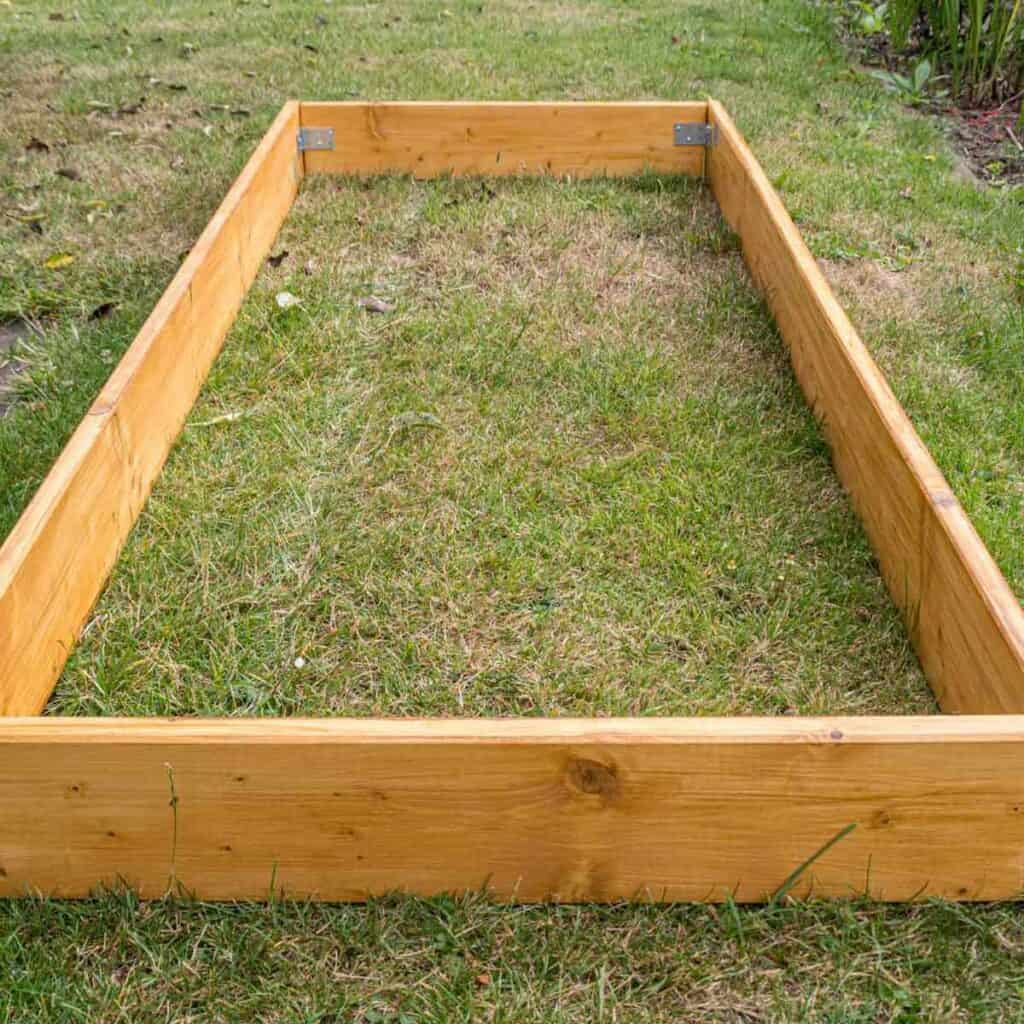
Thanks to Pop for creating this easy and economical plan to make a DIY cedar raised garden bed. He also provided four free reclaimed angle irons that had originally supported some decorative beams at a friend’s condo.
Pop’s garage is full of treasures like this, and it’s amazing how he can go in there and rummage around and emerge with just the right tool or hardware for just about any job.
He proposed that we use the angle irons to secure four pieces of lumber to make a frame for the garden, and he even created CAD drawings to illustrate the process:
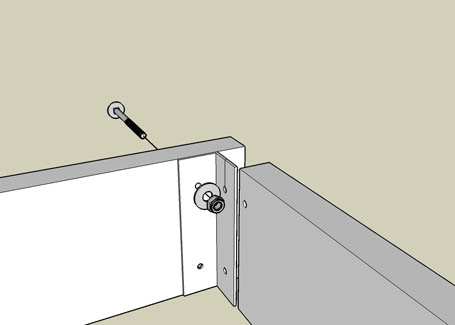
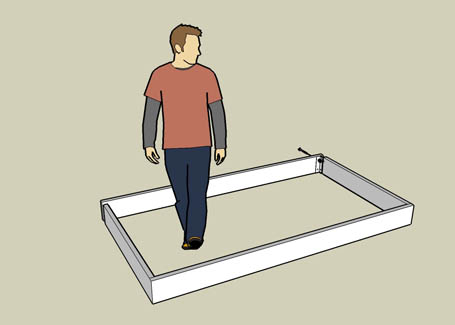
Materials Needed
We planned to construct a 4- by 8-foot frame, and discussed options for lumber. We decided to build the garden with planks of redwood because it’s long-lasting, it holds up well in the extreme weather conditions we have in Colorado, and also because it’s a renewable resource, generally harvested on a sustainable basis.
We purchased three ‘Top Choice’ redwood planks at Lowe’s, 8 feet long by 8 inches tall and 2 inches thick. We cut one of the boards in half to make the two 4-foot sections.
This is a close-up of one of the angle irons securing two boards:
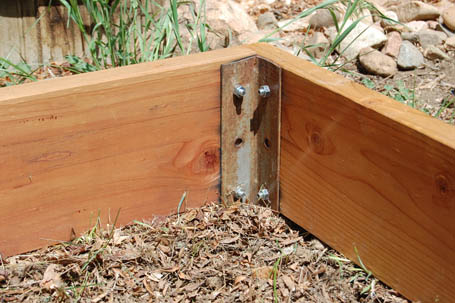
A note from Pop about angle irons: “You can buy angle iron that has holes every 1-1/2″ or so on both sides, in 3-foot or 4-foot lengths. One advantage of that is you could leave them longer and drive them into the ground to hold the frame in place.”
Here’s how the frame looked before we filled it:
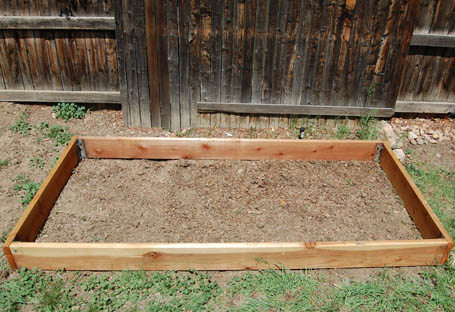
Note the abundance of weeds surrounding the garden frame! After filling it with 10 cubic feet of organic soil, I laid down a weedproof barrier:
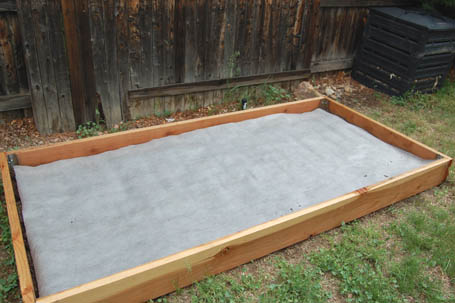
Finally, I added several more cubic feet of organic soil. After cutting holes in the fabric weed barrier, I planted five heirloom tomato plants.
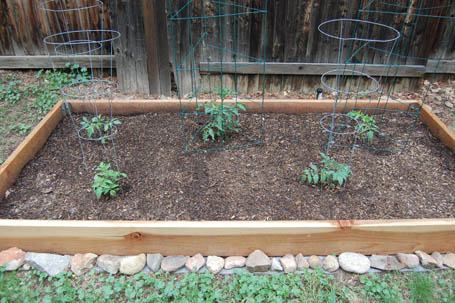
I surrounded the bed with some rocks from around the yard laid over a six-inch strip of weedproof barrier.
To protect the tomato plants and help retain moisture, I laid down pine needles (also known as pine straw mulch).
Is Cedar a Long Lasting Choice for a Raised Garden?
One of the best measures of true sustainability is how sturdy and long lasting the materials are. I’m happy to report that we’ve grown a garden each summer in this raised bed for 15 years.
The cedar has weathered to a nice gray and is still in great shape. We’re just starting to harvest this year’s crop of tomatoes.
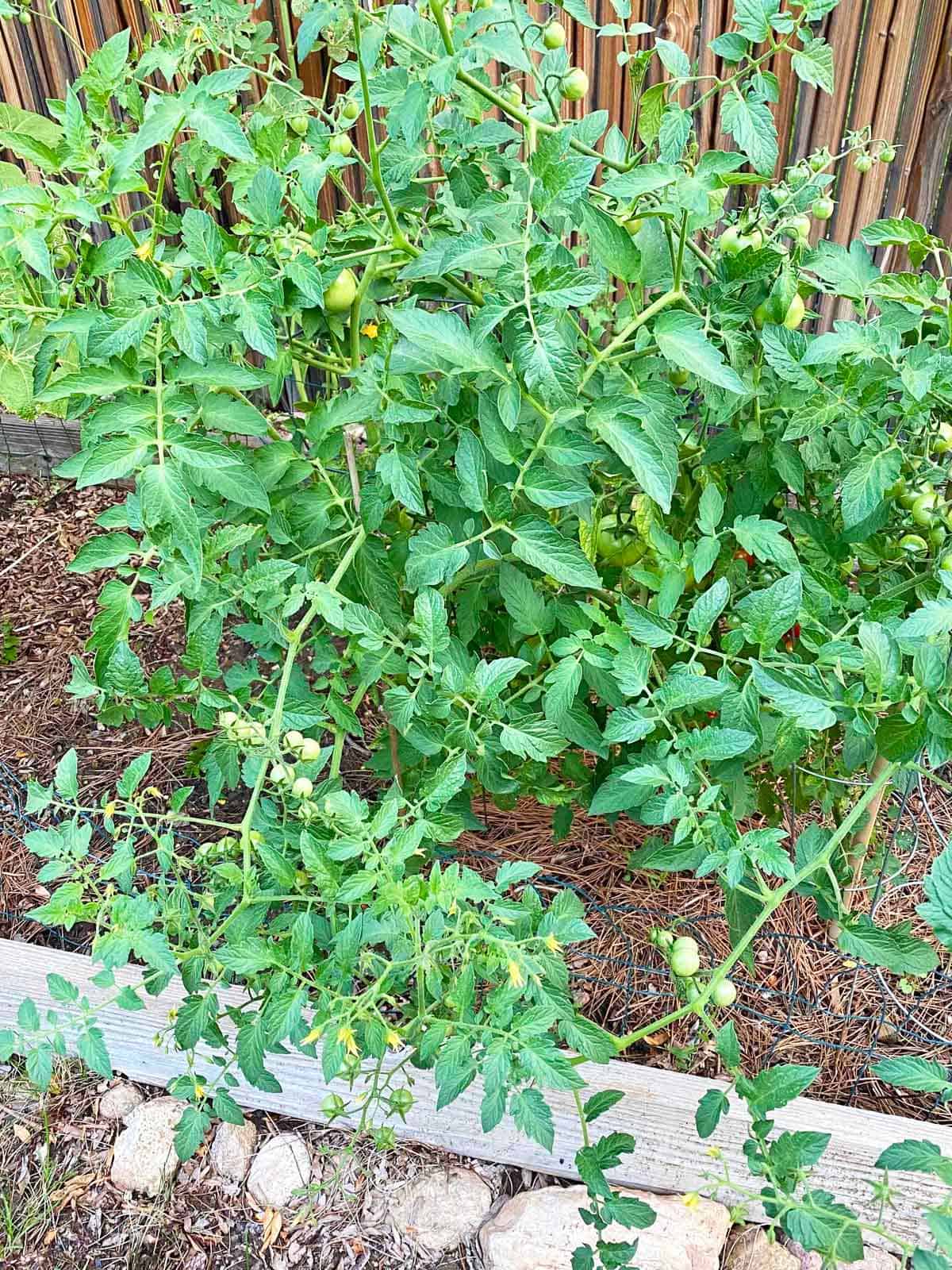
If you’ve built a low-cost raised garden or discovered any other money-saving gardening strategies, drop a comment and I’ll gladly post your links and ideas.
This tutorial was originally posted on May 27, 2009 and has been updated with new photos and information.
Save for Later
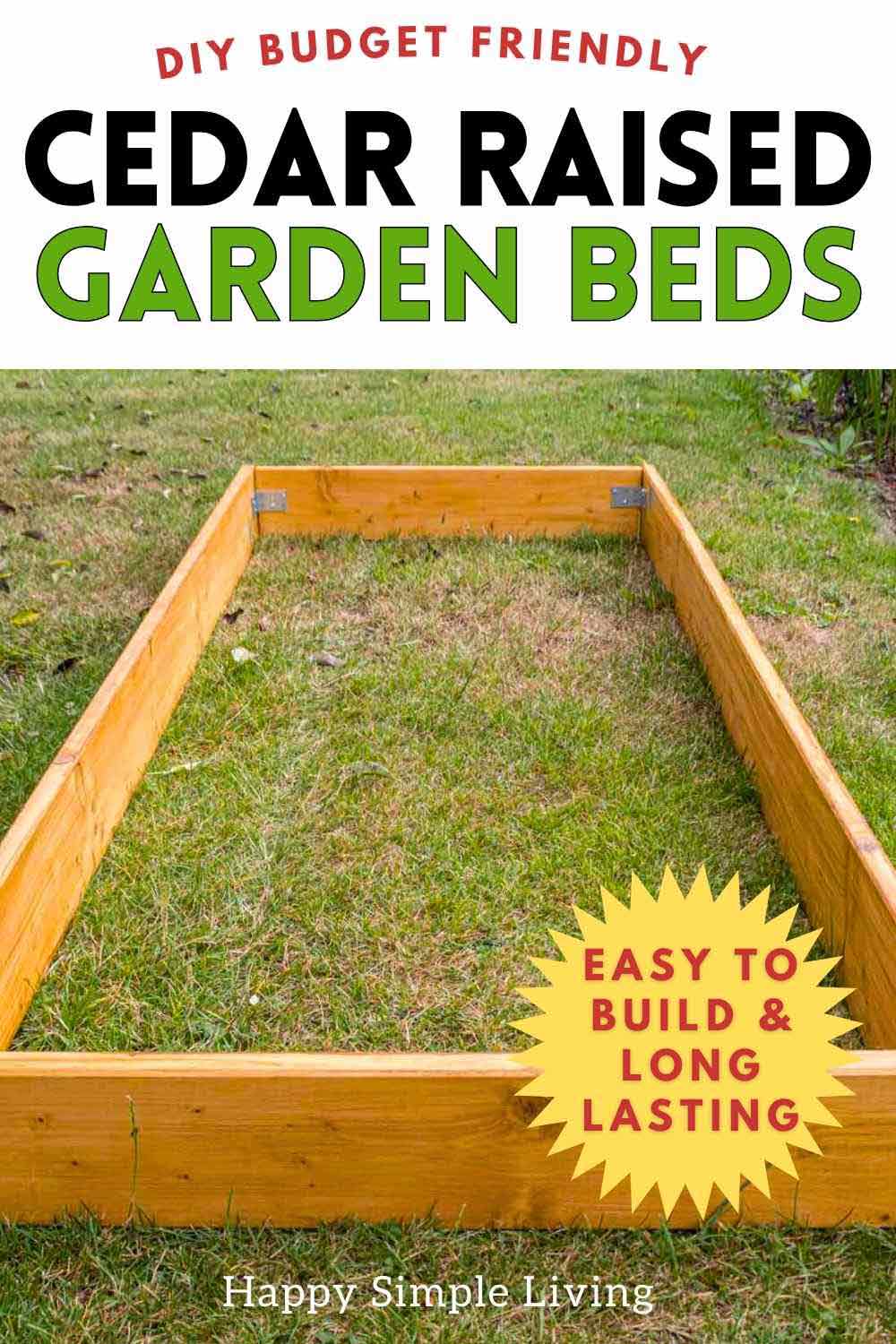

Eliza Cross is the creator of Happy Simple Living, where she shares ideas to help busy people simplify cooking, gardening, holidays, home, and money. She is also the award-winning author of 17 cookbooks, including Small Bites and 101 Things To Do With Bacon.

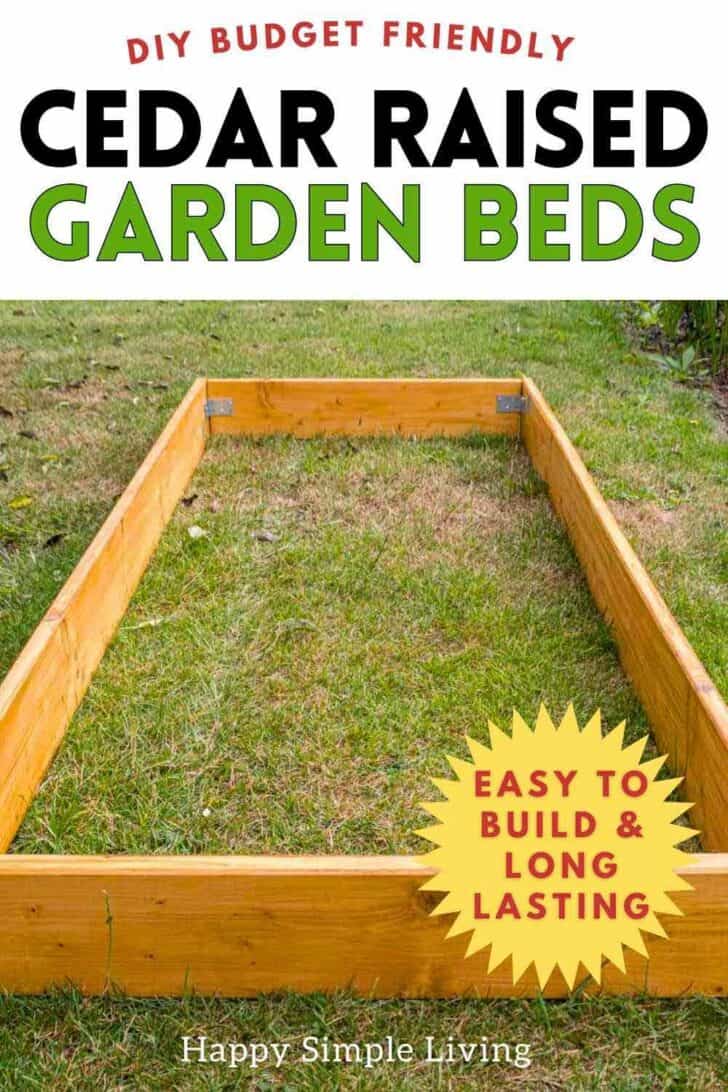




These photos, as I look out my window on the gray wet chilly soggy Early March Saturday are making me crazy! Come on Spring… get here!
Thank you so much! I have been searching for a good yet economical way to build a garden bed. This is it for me!